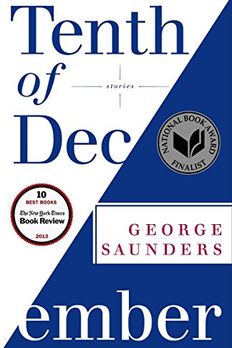



Two kids, a classic good-kid, listening to his parents, not causing any problems, etc. This was evidenced to me as a nature of Saunders’ writing with the first story in the collection. This keeps readers (and watchers of improv) on their toes at all points. Much like a good improv, I think great writing needs to answer everything with “yes and…” while also making sure to go not from A-B, but from A-F. Bear with me here, but Saunders reminds me of Slavoj Zizek in that you can read the words on the page very quickly, as the density to their structure isn’t really there, but it’s only after you’ve been reading three of four pages, breezing through them at that, that it dawns on you that you don’t know a word that has been said. Embarrassingly, it was only because Tenth of December was in the five-dollar bin, sitting out in the cold outside the doors of Books-A-Million with all the other books that nobody seems to read, that I took a chance and picked it up. I really loved Oblivion and recommended it to him, especially for the two stories “Good Old Neon” and “The Soul is Not a Smithy.” He recommended to me Inpersuasion Nation by George Saunders. I love books that stretch to 500 pages or more. Usually I just find myself longing for a novel. Which so happened to be my first book of short stories ever. We talked for a moment, I told him Gravity’s Rainbow was the craziest book in existence and that Infinite Jest is indeed all it is cracked up to be and then I mentioned that I had just finished Oblivion by David Foster Wallace. One day I walked into Hastings and found my friend Noah, also a heavy reader of the literary persuasion. Are you kidding me? In old audio of Bookworm interviews that appear on YouTube, David Foster Wallace at one point plugs CivilWarLand in Bad Decline, calling Saunders the best writer out there or something to that effect. When I pass by his name in bookstores and inevitably see what is there the first thing that jumps out to me is the names of the people who recommend him: Jonathan Franzen, Zadie Smith, Thomas Pynchon (!), Dave Eggers, etc. I’ve googled him and skimmed some of his stories that have appeared in The New Yorker, but that is the extent to which I have read him. I’m always admonished by those who read literary fiction for my not having read much George Saunders.


 0 kommentar(er)
0 kommentar(er)
